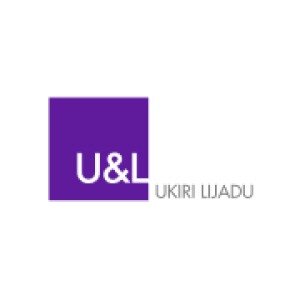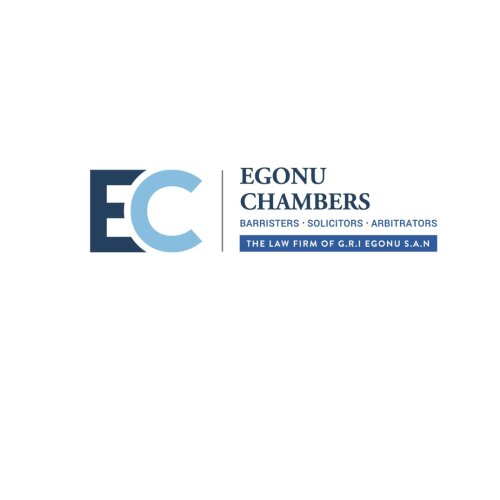Best Merger & Acquisition Lawyers in Maitama
Share your needs with us, get contacted by law firms.
Free. Takes 2 min.
List of the best lawyers in Maitama, Nigeria
About Merger & Acquisition Law in Maitama, Nigeria
Merger and Acquisition (M&A) law in Maitama, Abuja, Nigeria encompasses the regulations and practices that govern the consolidation of companies or assets through various financial transactions. These processes can include mergers, acquisitions, consolidations, tender offers, purchase of assets, and management acquisitions. In Maitama, like anywhere in Nigeria, M&A activities are subject to both federal regulation and local legal considerations. They are often complex transactions that require careful navigation of the Companies and Allied Matters Act (CAMA), the Investments and Securities Act, and the regulations stipulated by the Securities and Exchange Commission (SEC) which plays a key role in overseeing such transactions.
Why You May Need a Lawyer
Given the complex and specialized nature of M&A transactions, individuals and corporations typically require legal help to ensure compliance with all applicable laws, effective negotiation, and to facilitate smooth execution of the deals. You may need a lawyer to help with due diligence, drafting and reviewing agreements, advising on the structuring of transactions, navigating regulatory approvals, and addressing any competition concerns. Lawyers are also crucial for providing advice on potential risks, tax implications, and on preparing and submitting necessary documents to the relevant regulatory authorities.
Local Laws Overview
The key aspects of local laws relevant to M&A in Maitama, Nigeria, include the Companies and Allied Matters Act (CAMA), which provides the legal framework for company operations, including M&A activities. The Securities and Exchange Commission (SEC) regulations mandate certain disclosure and procedural requirements for M&A to protect shareholders and promote fairness in these transactions. Additionally, the Federal Competition and Consumer Protection Act addresses competition-related issues that arise from M&A. It's important to note that foreign investors engaging in M&A activities must also comply with the Nigerian Investment Promotion Commission Act (NIPC Act), as well as provisions regarding foreign exchange which are overseen by the Central Bank of Nigeria (CBN).
Frequently Asked Questions
What is a merger, and how does it differ from an acquisition?
A merger occurs when two or more companies agree to combine their operations and form a new entity, while an acquisition is the process where one company takes ownership of another company's shares or assets. The key difference lies in the end result - a merger leads to the formation of a new legal entity, whereas an acquisition does not necessarily create a new company.
What are the necessary steps in an M&A transaction?
An M&A transaction typically involves several steps: conducting due diligence, negotiating terms and conditions, obtaining regulatory approvals, drafting and exchanging transaction documents, closing the deal, and post-merger integration.
How long does an M&A transaction usually take?
The duration of an M&A transaction can vary greatly depending on the complexity of the deal, the efficiency of the due diligence process, negotiation duration, and the time taken to obtain necessary regulatory approvals. It can take anywhere from a few months to over a year.
Are there any regulatory bodies that must approve M&A transactions?
Yes, the Securities and Exchange Commission (SEC) typically must approve M&A transactions in Nigeria. Additionally, depending on the sector, other regulatory bodies such as the Central Bank of Nigeria or the Nigerian Communications Commission may also need to approve the transaction.
What is the role of due diligence in an M&A transaction?
Due diligence is a critical step in the M&A process that involves a thorough investigation of the target company. It helps the acquiring company understand the target company's business, financials, legal obligations, and potential risks before finalizing the transaction.
How are employees affected by M&A transactions?
M&A transactions can have significant impacts on employees, including potential changes in management, company culture, job security, and benefits. Employee rights are protected under Nigerian labor laws, and any changes impacting employees must be handled in compliance with these laws.
Is it mandatory to have a lawyer during M&A transactions?
While it is not legally mandatory to have a lawyer, given the legal complexities, potential risks, and regulatory requirements involved in M&A transactions, it is highly advisable to engage a competent lawyer to navigate the process successfully.
Can foreign entities engage in M&A in Nigeria?
Foreign entities can engage in M&A in Nigeria, but they must comply with local laws, including the Nigerian Investment Promotion Commission Act and regulations concerning foreign exchange managed by the Central Bank of Nigeria.
What is the role of the Securities and Exchange Commission in M&A?
The SEC oversees M&A transactions to ensure compliance with legal and regulatory requirements, protect shareholders' interests, maintain fair markets, and prevent fraud.
What are the tax implications of M&A transactions?
Tax implications can vary based on the structure of the transaction. It's important to consult with a lawyer or tax advisor who can provide guidance on potential taxes such as capital gains tax, stamp duties, and Value Added Tax (VAT) associated with the deal.
Additional Resources
For additional help and information on M&A in Maitama, Nigeria, resources such as the Corporate Affairs Commission (CAC), Securities and Exchange Commission (SEC), Nigerian Investment Promotion Commission (NIPC), and the Federal Competition and Consumer Protection Commission (FCCPC) may be useful. Local chambers of commerce and professional associations such as the Nigerian Bar Association's Section on Business Law can also provide valuable insights and networking opportunities.
Next Steps
If you need legal assistance in M&A, the next step is to seek out a reputable law firm or a lawyer who specializes in corporate law and has experience with M&A transactions in Nigeria. They will assist you with due diligence, structuring the transaction, drafting necessary documentation, ensuring compliance with all legal requirements, and representing your interests during negotiations and regulatory approval processes.
Lawzana helps you find the best lawyers and law firms in Maitama through a curated and pre-screened list of qualified legal professionals. Our platform offers rankings and detailed profiles of attorneys and law firms, allowing you to compare based on practice areas, including Merger & Acquisition, experience, and client feedback.
Each profile includes a description of the firm's areas of practice, client reviews, team members and partners, year of establishment, spoken languages, office locations, contact information, social media presence, and any published articles or resources. Most firms on our platform speak English and are experienced in both local and international legal matters.
Get a quote from top-rated law firms in Maitama, Nigeria — quickly, securely, and without unnecessary hassle.
Disclaimer:
The information provided on this page is for general informational purposes only and does not constitute legal advice. While we strive to ensure the accuracy and relevance of the content, legal information may change over time, and interpretations of the law can vary. You should always consult with a qualified legal professional for advice specific to your situation.
We disclaim all liability for actions taken or not taken based on the content of this page. If you believe any information is incorrect or outdated, please contact us, and we will review and update it where appropriate.









